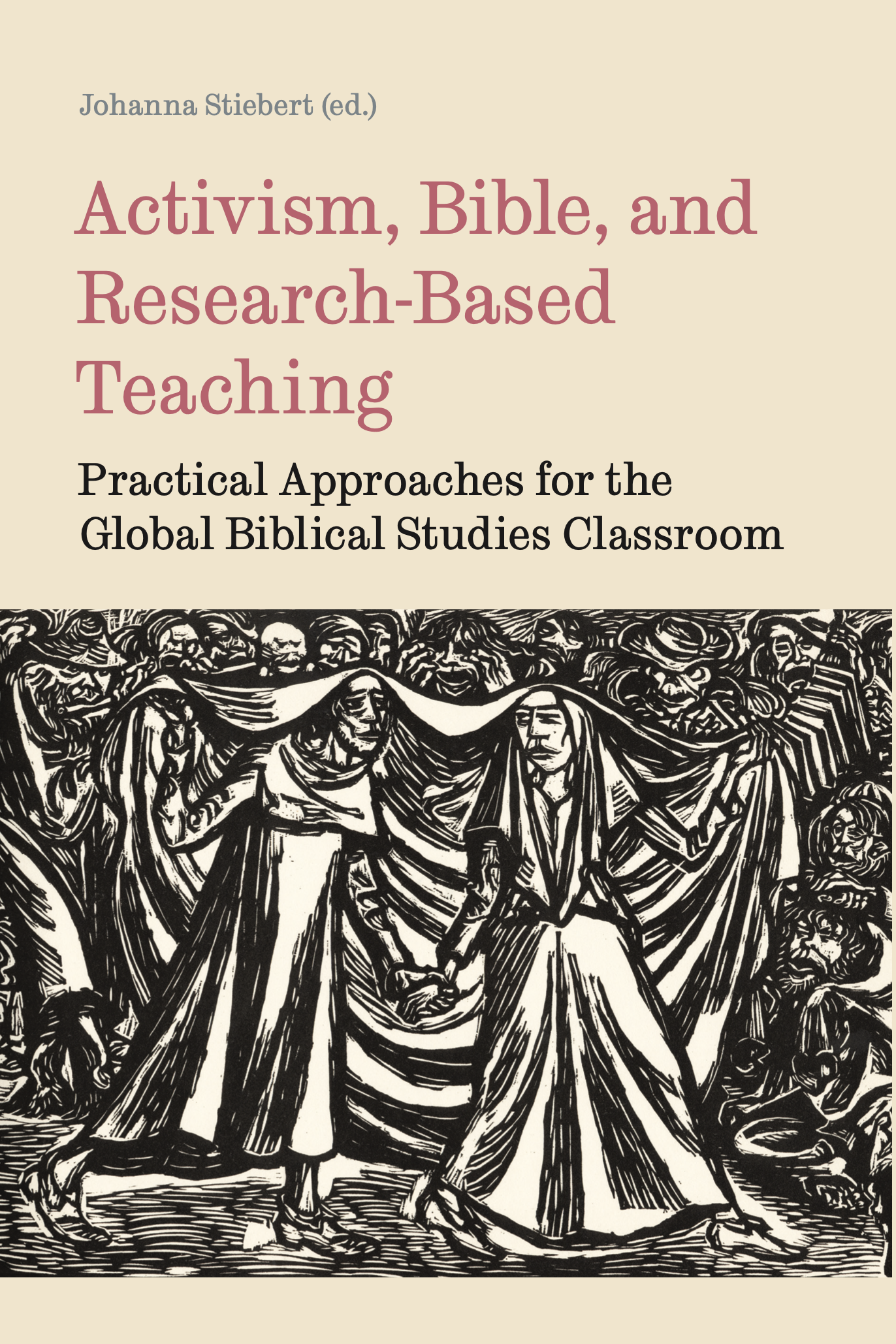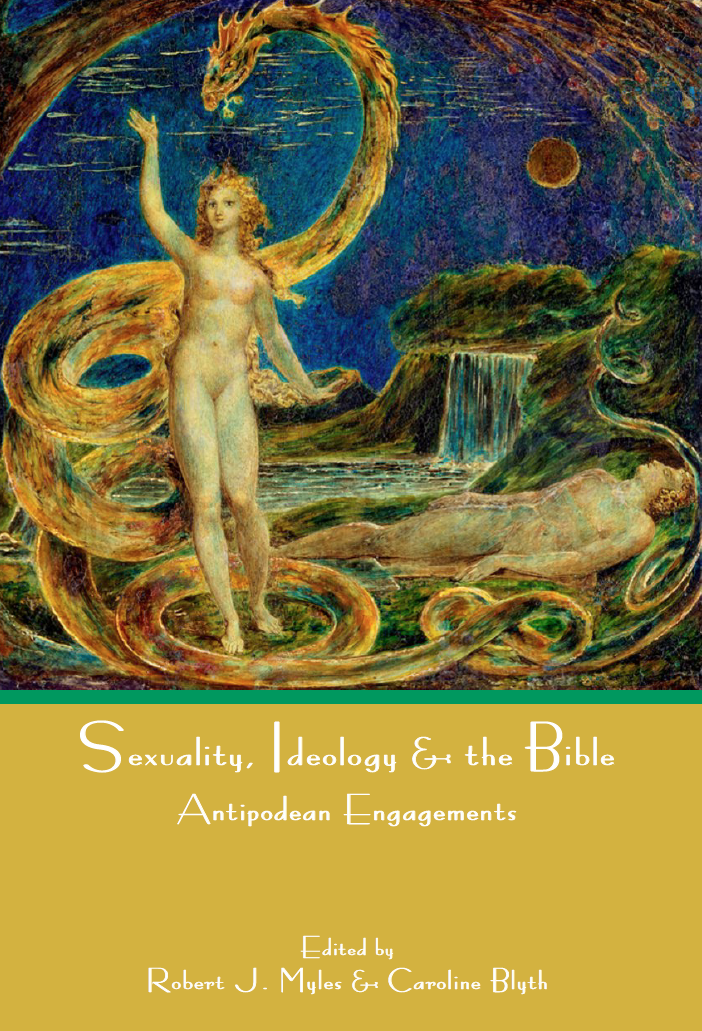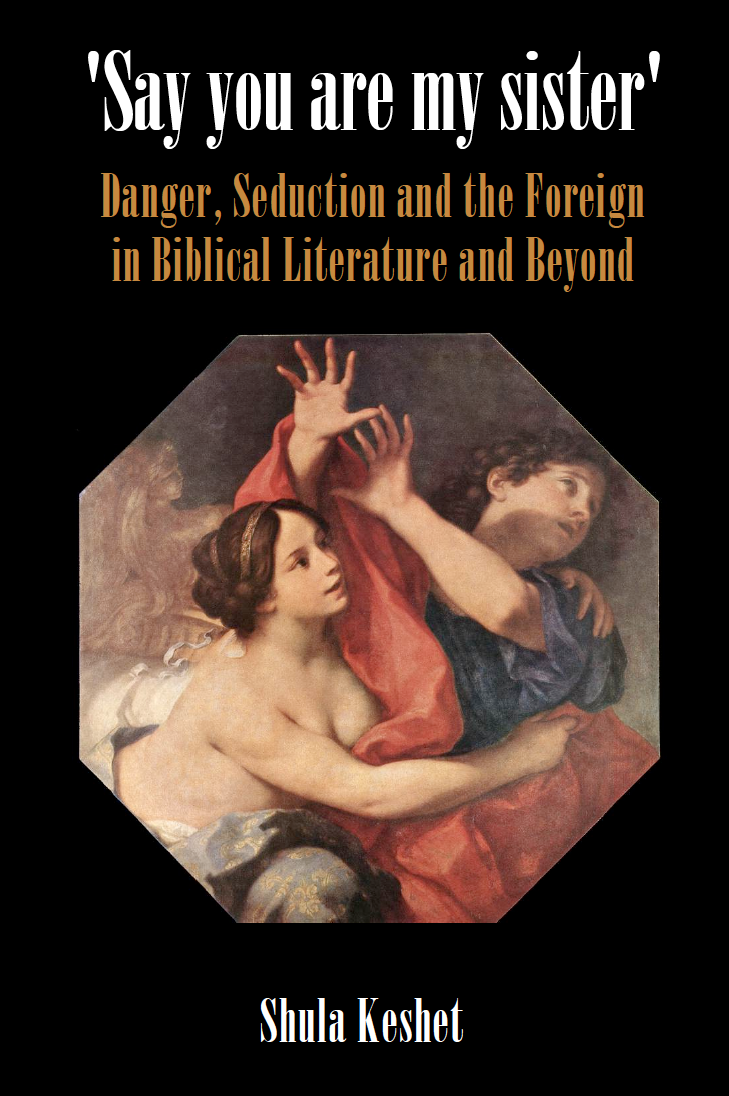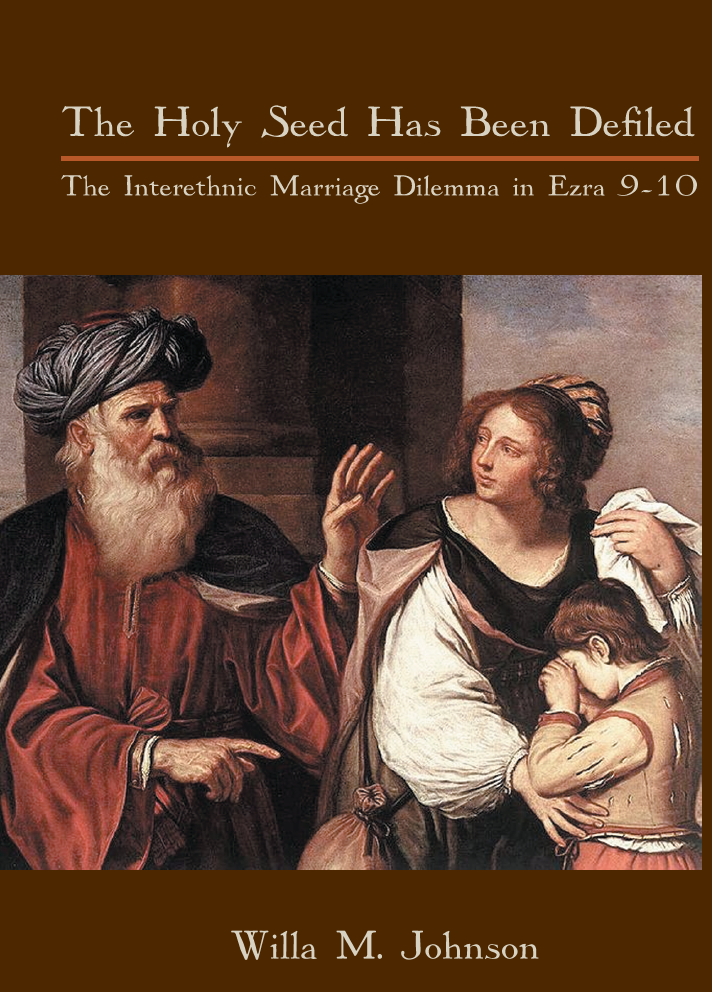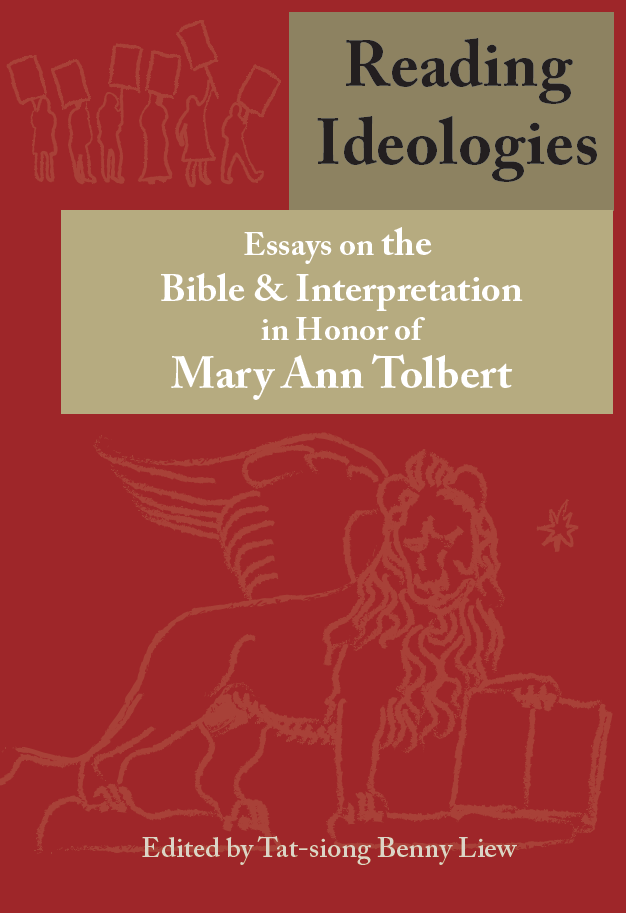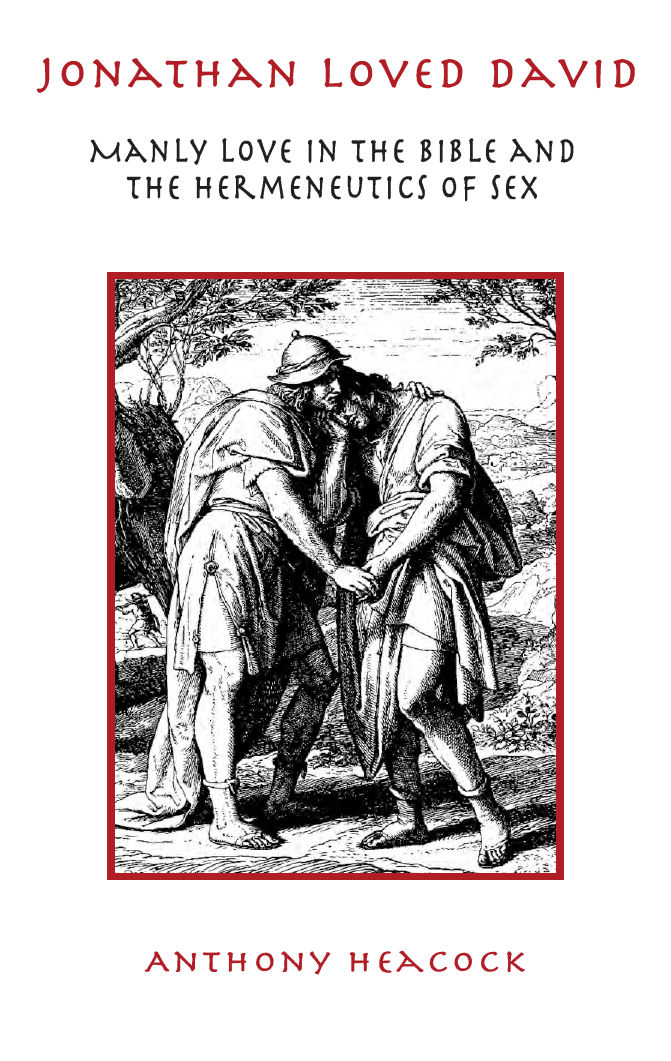Sexuality, Ideology and the Bible: Antipodean Engagements
Published: Sep 2015
£60.00
What happens when explorations of sexuality, gender and the Bible go down under? This fascinating collection of essays, written by scholars located in the Antipodes, traverses the highly contested landscapes of sexuality, gender and biblical studies, revealing a myriad of sexual discourses voiced within both the biblical texts and their interpretative traditions. Recognizing that textual meaning is always shaped by the cultural and contextual baggage the reader brings to the interpretative task, contributors raise provocative questions about the meanings, identities and ideologies that surround biblical discourses of sexuality and gender, exploring how these have been and can be reshaped and reconceived.
Deane Galbraith examines the theological reflections of Augustine and Paul on Adam's 'perfect penis' in Eden while Roland Boer explores the earthy biblical vocabulary used to depict female genitalia. Christina Petterson, meanwhile, examines the Moravian Brethren's celebration of a Christ who bore on his body male and female genitalia. Travelling beyond the sexualized human body, Emily Colgan considers the problematic language of gender violence against the land that is voiced in Jeremiah. Elaine Wainwright blurs and queers the binary categories of human and non-human in the Sermon on the Mount. Yael Klangwisan continues this blurring of boundaries through her creative reading of Song of Songs.
Moving from the gendered body to the gendered voice, Alan Cadwallader probes Paul's rhetorical gender-bending in his 'masculinized' oral culture. Caroline Blyth and Teguh Wijaya Mulya empower Delilah to vocalize her queer potential in both the biblical narrative and popular culture. Gillian Townsley adds her own Kiwi voice to explore queer possibilities in Philippians 4.2-3 in the light of New Zealand's same-sex marriage legislation. The volume concludes with a queer reconsideration of the Antipodes themselves from the perspective of a northern-hemisphere biblical scholar, Hugh Pyper.
This compelling collection will make a substantive contribution to the bookshelves of scholars and interested readers in such areas as biblical studies, religion and gender-queer studies.
Sexuality, Ideology and the Bible: Antipodean Engagements
£60.00
What happens when explorations of sexuality, gender and the Bible go down under? This fascinating collection of essays, written by scholars located in the Antipodes, traverses the highly contested landscapes of sexuality, gender and biblical studies, revealing a myriad of sexual discourses voiced within both the biblical texts and their interpretative traditions. Recognizing that textual meaning is always shaped by the cultural and contextual baggage the reader brings to the interpretative task, contributors raise provocative questions about the meanings, identities and ideologies that surround biblical discourses of sexuality and gender, exploring how these have been and can be reshaped and reconceived.
Deane Galbraith examines the theological reflections of Augustine and Paul on Adam's 'perfect penis' in Eden while Roland Boer explores the earthy biblical vocabulary used to depict female genitalia. Christina Petterson, meanwhile, examines the Moravian Brethren's celebration of a Christ who bore on his body male and female genitalia. Travelling beyond the sexualized human body, Emily Colgan considers the problematic language of gender violence against the land that is voiced in Jeremiah. Elaine Wainwright blurs and queers the binary categories of human and non-human in the Sermon on the Mount. Yael Klangwisan continues this blurring of boundaries through her creative reading of Song of Songs.
Moving from the gendered body to the gendered voice, Alan Cadwallader probes Paul's rhetorical gender-bending in his 'masculinized' oral culture. Caroline Blyth and Teguh Wijaya Mulya empower Delilah to vocalize her queer potential in both the biblical narrative and popular culture. Gillian Townsley adds her own Kiwi voice to explore queer possibilities in Philippians 4.2-3 in the light of New Zealand's same-sex marriage legislation. The volume concludes with a queer reconsideration of the Antipodes themselves from the perspective of a northern-hemisphere biblical scholar, Hugh Pyper.
This compelling collection will make a substantive contribution to the bookshelves of scholars and interested readers in such areas as biblical studies, religion and gender-queer studies.
‘Say You Are My Sister’: Danger, Seduction and the Foreign in Biblical Literature and Beyond
Published: Oct 2013
£50.00
Throughout biblical and Jewish literature we encounter a repeated story of a Hebrew or Jewish character who becomes involved in a dangerous erotic relationship. The sexual tension in these tales articulates the ambivalence between the national identities of the character and of the foreign other.
The first exemplification of the topos occurs in Genesis, where the matriarchs Sarah and Rebekah are handed over (or almost so) by their husbands to a foreign king. The other biblical cases are those of Joseph, who experiences the danger of seduction by Potiphar's wife, and Esther, who is taken by force into the harem of the Persian emperor.
In modern Hebrew literature, the theme reappears in the short story by the Nobel Prize winner S.Y. Agnon, 'The Lady and the Pedlar' from 1943, in which the Jewish pedlar is at risk of becoming the prey of a foreign cannibalistic woman, and in the novel Inta Omri (1994) by the poet-author Smadar Herzfeld, which describes a desperate love affair between an Israeli woman and a Palestinian man against the backdrop of the Intifada in the late 1980s.
Between the chapters devoted to these works lies a discussion of the film by the Swedish director Ingmar Bergman, The Touch (1971), the story of a Jewish archaeologist who falls in love with a Swedish woman, which Keshet reads as another instance of the same theme, but this time as a metaphor of Jewish —Christian relations from the perspective not of the Jewish character but of the foreign other.
‘Say You Are My Sister’: Danger, Seduction and the Foreign in Biblical Literature and Beyond
£50.00
Throughout biblical and Jewish literature we encounter a repeated story of a Hebrew or Jewish character who becomes involved in a dangerous erotic relationship. The sexual tension in these tales articulates the ambivalence between the national identities of the character and of the foreign other.
The first exemplification of the topos occurs in Genesis, where the matriarchs Sarah and Rebekah are handed over (or almost so) by their husbands to a foreign king. The other biblical cases are those of Joseph, who experiences the danger of seduction by Potiphar's wife, and Esther, who is taken by force into the harem of the Persian emperor.
In modern Hebrew literature, the theme reappears in the short story by the Nobel Prize winner S.Y. Agnon, 'The Lady and the Pedlar' from 1943, in which the Jewish pedlar is at risk of becoming the prey of a foreign cannibalistic woman, and in the novel Inta Omri (1994) by the poet-author Smadar Herzfeld, which describes a desperate love affair between an Israeli woman and a Palestinian man against the backdrop of the Intifada in the late 1980s.
Between the chapters devoted to these works lies a discussion of the film by the Swedish director Ingmar Bergman, The Touch (1971), the story of a Jewish archaeologist who falls in love with a Swedish woman, which Keshet reads as another instance of the same theme, but this time as a metaphor of Jewish —Christian relations from the perspective not of the Jewish character but of the foreign other.
Reading Ideologies: Essays on the Bible and Interpretation in Honor of Mary Ann Tolbert
Published: Sep 2011
£75.00
Mary Ann Tolbert has been a pioneering voice in what we have now come to call 'interdisciplinary reading' of the Bible. In the early stages of her career, Tolbert used New Testament parables to push biblical scholarship beyond the traditional confines of historical-critical methods. Over the past four decades, she has made significant contributions to psychoanalytical, narrative, rhetorical, feminist, and queer readings of the Bible, and has interrogated the social location of biblical interpreters as well as the ideological implications of reading and reading methodologies.
Divided into three main sections, this collection of essays from biblical scholars around the world to honor Tolbert engage the very issues that have driven and defined Tolbert's scholarship: reading between the historical and the literary; reading between biblical authority and social location; and reading between gender and sexuality. The title of the collection focuses on an often-used but arguably under-examined term in biblical studies: 'ideology'. Together, essays in this volume not only perform ideological criticism of the Bible but also profess the ideological nature of criticism itself, since —regardless of 'what' and 'how' one is reading —the act of reading is always already infused with ideology. By highlighting the work of ideology in interpretation, this volume ultimately suggests that while ideology impacts interpretation of meaning, the meaning of ideology itself also needs to be interpreted.
Reading Ideologies: Essays on the Bible and Interpretation in Honor of Mary Ann Tolbert
£75.00
Mary Ann Tolbert has been a pioneering voice in what we have now come to call 'interdisciplinary reading' of the Bible. In the early stages of her career, Tolbert used New Testament parables to push biblical scholarship beyond the traditional confines of historical-critical methods. Over the past four decades, she has made significant contributions to psychoanalytical, narrative, rhetorical, feminist, and queer readings of the Bible, and has interrogated the social location of biblical interpreters as well as the ideological implications of reading and reading methodologies.
Divided into three main sections, this collection of essays from biblical scholars around the world to honor Tolbert engage the very issues that have driven and defined Tolbert's scholarship: reading between the historical and the literary; reading between biblical authority and social location; and reading between gender and sexuality. The title of the collection focuses on an often-used but arguably under-examined term in biblical studies: 'ideology'. Together, essays in this volume not only perform ideological criticism of the Bible but also profess the ideological nature of criticism itself, since —regardless of 'what' and 'how' one is reading —the act of reading is always already infused with ideology. By highlighting the work of ideology in interpretation, this volume ultimately suggests that while ideology impacts interpretation of meaning, the meaning of ideology itself also needs to be interpreted.
Jonathan Loved David: Manly Love in the Bible and the Hermeneutics of Sex
Published: Mar 2011
£60.00
The relationship between the Hebrew heroes David and Jonathan has caught the attention of popular and scholarly writers alike. Yet there is little agreement about the nature of this relationship that speaks of a love between two men that 'surpasses the love of a man for a woman' (2 Sam. 1.26). Weighing the arguments of scholars including Nissinen, Stone and Zehnder, Heacock produces a meta-critical analysis of the many interpretations of the relationship between David and Jonathan, identifying three dominant readings: the traditional political-theological interpretation, the homoerotic interpretation, and the homosocial interpretation.
After outlining the three interpretive approaches, Heacock considers the evidence cited to support each: namely, themes in the David and Jonathan narrative and related biblical texts, ancient political treaties, laws pertaining to homogenital behaviour in the ancient Mediterranean world, and the heroic tales of the Gilgamesh Epic and Homer's Iliad. By applying recent epistemological shifts in knowledge as developed in the interdisciplinary fields of sexuality studies, queer studies and ancient studies, Heacock emphasizes the inescapability of the modern reader's cultural context when reading the narrative, particularly the influence of modern discourses of sexuality.
Rather than suggest an alternative historical reading, Heacock turns the debate on its head by abandoning claims to historical veracity and embracing the input of the contemporary queer reader. Using queer theory and reader-response criticism, he offers a reading of the relationship between David and Jonathan through the lens of contemporary gay male friendships. This queer reading not only celebrates manly love in its numerous forms, but also adds a self-critical voice to the discussion that exposes the heteronormative assumptions underlying the questions often asked of the narrative.
Jonathan Loved David: Manly Love in the Bible and the Hermeneutics of Sex
£60.00
The relationship between the Hebrew heroes David and Jonathan has caught the attention of popular and scholarly writers alike. Yet there is little agreement about the nature of this relationship that speaks of a love between two men that 'surpasses the love of a man for a woman' (2 Sam. 1.26). Weighing the arguments of scholars including Nissinen, Stone and Zehnder, Heacock produces a meta-critical analysis of the many interpretations of the relationship between David and Jonathan, identifying three dominant readings: the traditional political-theological interpretation, the homoerotic interpretation, and the homosocial interpretation.
After outlining the three interpretive approaches, Heacock considers the evidence cited to support each: namely, themes in the David and Jonathan narrative and related biblical texts, ancient political treaties, laws pertaining to homogenital behaviour in the ancient Mediterranean world, and the heroic tales of the Gilgamesh Epic and Homer's Iliad. By applying recent epistemological shifts in knowledge as developed in the interdisciplinary fields of sexuality studies, queer studies and ancient studies, Heacock emphasizes the inescapability of the modern reader's cultural context when reading the narrative, particularly the influence of modern discourses of sexuality.
Rather than suggest an alternative historical reading, Heacock turns the debate on its head by abandoning claims to historical veracity and embracing the input of the contemporary queer reader. Using queer theory and reader-response criticism, he offers a reading of the relationship between David and Jonathan through the lens of contemporary gay male friendships. This queer reading not only celebrates manly love in its numerous forms, but also adds a self-critical voice to the discussion that exposes the heteronormative assumptions underlying the questions often asked of the narrative.

